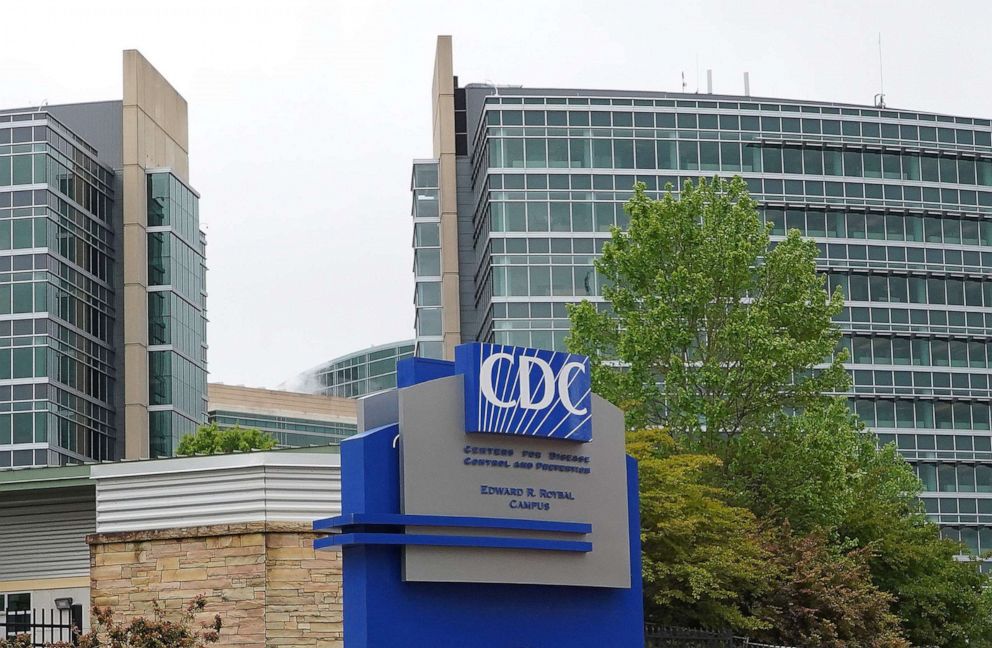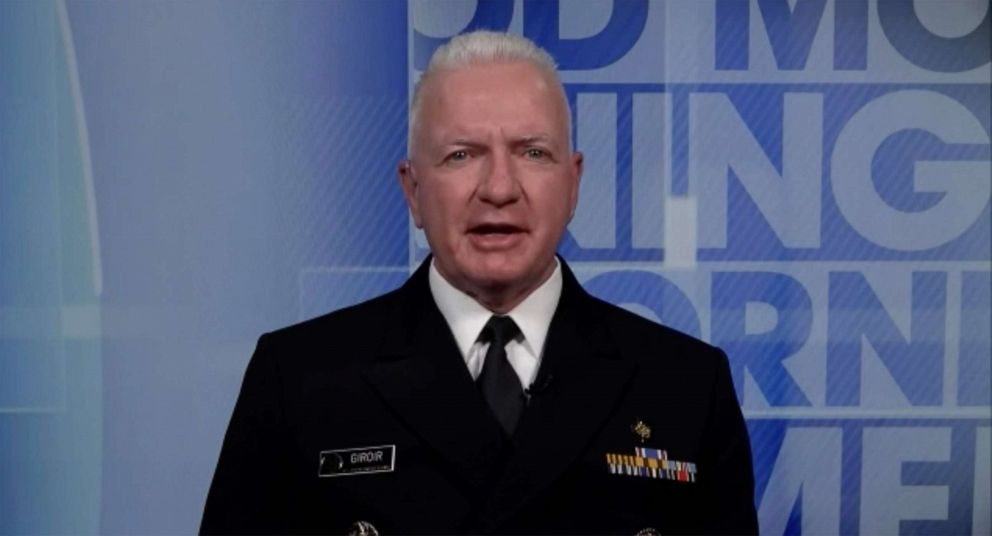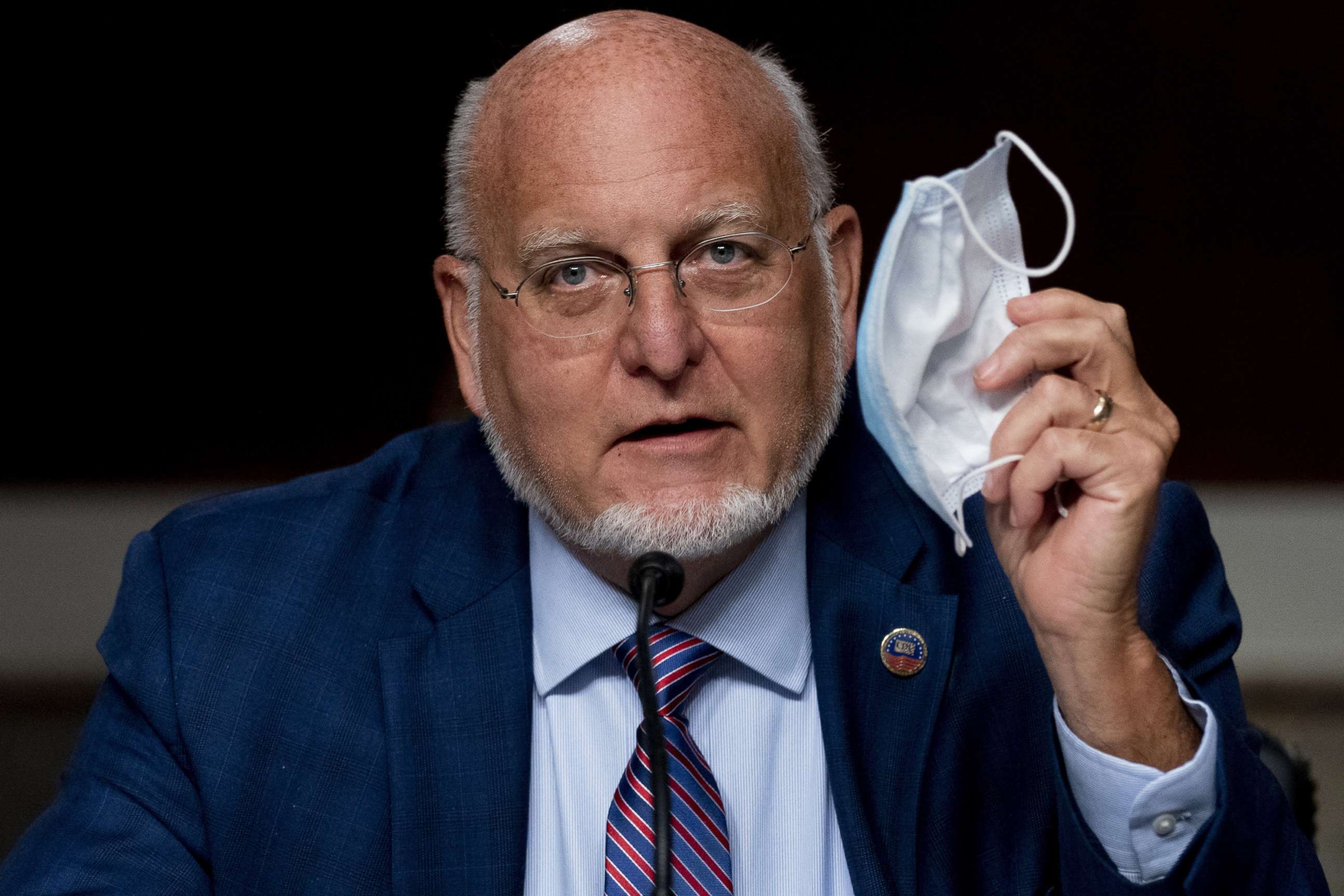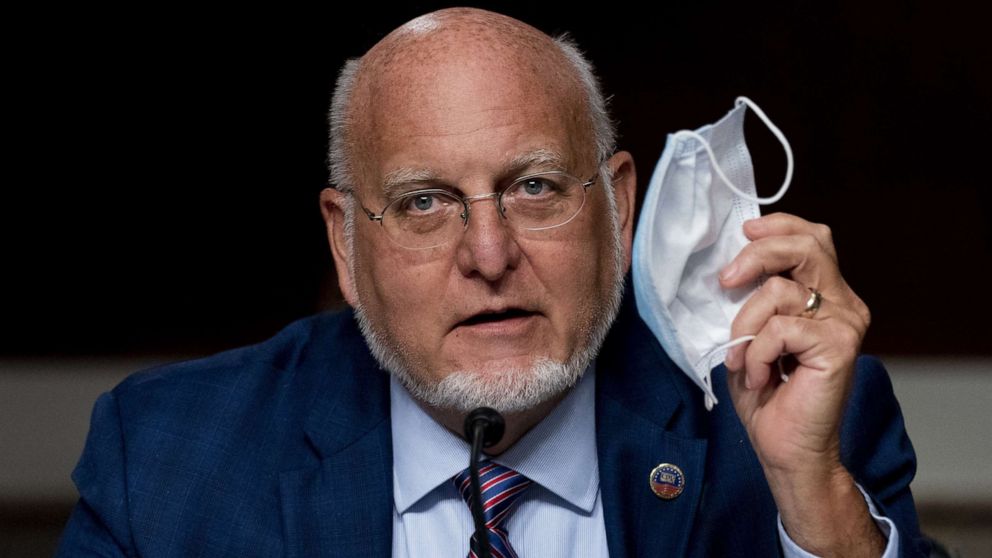CDC reverses testing guidelines after report of interference
The Centers for Disease Control and Prevention has reversed guidance on who should be tested for the virus that causes COVID-19, specifying that asymptomatic people who have come in contact with an infected person should get tested and quarantine for 14 days -- a change from guidance released last month that said testing might not be necessary for people without symptoms.
CDC guidance released in August caused alarm in the public health community that data would give an incomplete picture of outbreaks around the country, and The New York Times reported this week that it was published by the Department of Health and Human Services without approval from experts at the CDC.
It said that if a person came in contact with someone infected with the virus that causes COVID-19 "you do not necessarily need a test" if you don't exhibit any symptoms, but that local public health officials or health care providers might still recommend one. CDC Director Robert Redfield has tried to clarify the guidance, testifying this week that it did not mean people without symptoms shouldn't get a test but that they should consult local health guidance and that testing should be paired with other protective measures like isolating for 14 days.

The CDC removed that language on Friday, returning to instructions that say if someone has been in close contact with a person with COVID-19 infection "you need a test" and to self-isolate for 14 days, even if the test is negative.
Doctors like Thomas File, president of the Infectious Diseases Society of America, praised the reversal and called it a return to science-based decisions.
“The return to a science-based approach to testing guidance from the Centers for Disease Control and Prevention is good news for public health and for our united fight against this pandemic. We urge officials to support the work of controlling this pandemic by following medical guidance of experts in the field," File said in a statement.
This week, The New York Times reported the August guidance was pushed by officials at the Department of Health and Human Service and White House coronavirus task force over the objections of experts at CDC. But Brett Giroir, the top official at the Department of Health and Human Services leading the federal efforts on testing, pushed back on that report.
“This was a CDC document and we will continue to clarify because I want people to know that if you are asymptomatic you can still spread the virus and we want them to be tested,” he said in an interview on ABC's "Good Morning America" on Friday.

Public health officials say that a lack of testing has been a weak point in the country's response to the coronavirus pandemic since the beginning, from a lack of tests to backlogs for results, making it more difficult to trace who infected people have been in contact with.
President Donald Trump has said that more tests result in more cases, causing concern among public health experts that he could push to slow testing they say is crucial to tracking outbreaks around the country.
He has also publicly contradicted officials working on the COVID-19 response on the timeline for a potential vaccine and the effectiveness of wearing face masks, which officials at the CDC and HHS say is the most important tool in preventing the spread of the virus.
Public health experts have expressed concerns that political considerations are influencing the pandemic response and have bristled at reports that political appointees are overruling subject matter experts at the CDC and the FDA.
A top official at Health and Human Services, Michael Caputo, recently announced he was taking leave after he made comments on social media accusing CDC scientists of sedition and saying they don't care about protecting Americans, charges the CDC director and other public health officials denied. Caputo later apologized.

Officials in the Trump administration have said they were not directed to slow testing and are distributing more testing equipment to nursing homes and other vulnerable populations to help track and stop infections.
"The number of cases are going to be the number of cases; we do more testing so we can detect more and more cases. That's a good thing. We want to detect as many cases as we can...It is true that the more testing you do, the more cases you will discover. But the cases are there no, no matter what," Giroir testified at a Senate Appropriations Committee hearing on Wednesday.
Any appearance of political influence could be particularly harmful when it comes to a potential COVID-19 vaccine, experts warn. The concern is that people will decide not get vaccinated and that the virus will continue to spread.




